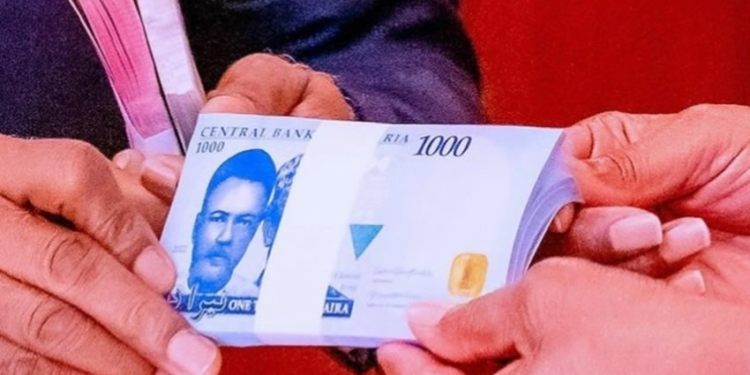- The Nigerian Naira’s recent downturn contrasts sharply with its previous commendable performance, increasing pressure on the Central Bank
- The scarcity of US currency in the local market is cited as the primary reason behind the Naira’s depreciation
As outlined in a recent Bloomberg report, the Nigerian Naira has experienced a significant downturn, transitioning from being the best-performing currency to the worst-performing currency.
This reversal starkly contrasts with its commendable performance in the previous month, placing added pressure on the Central Bank of Nigeria (CBN) to consider further interest rate adjustments.
The Naira’s depreciation to 1,466.31 against the dollar, its weakest level since March 20, is primarily attributed to the scarcity of US currency in the local market, with only $84 million available on Thursday, representing half of the previous day’s supply.
CBN Governor Yemi Cardoso had previously lauded the Naira as the world’s best-performing currency as of April 2024. However, challenges arose in March, with the Naira plummeting to N1,600/$1 on the official market and N1,800/$1 on the parallel market.
Cardoso attributed this achievement to foreign exchange market reforms and positive sentiment from leading international investment institutions. Nonetheless, Razia Khan, Chief Economist for Africa and the Middle East at Standard Chartered, estimates that the maturity of $1.3 billion in Naira futures by the end of this month may increase demand for dollars, impacting market sentiment.
This decline in the Naira’s performance is anticipated to escalate pressure on the CBN to implement another rate hike following its upcoming policy meeting on May 21. The Central Bank had raised rates by 600 basis points in February and March, aiding the Naira’s rebound from its March low.
The weakening of the Naira extends to the unofficial market, where it depreciated by 0.9% to 1,468 Naira against the dollar on Friday. According to Abubakar Muhammed, CEO of Forward Marketing Bureau de Change Ltd, this decline is attributed to heightened demand from individuals and small businesses.
Interestingly, two other African currencies, the Zambian kwacha and Ghana’s cedi, rank among the four worst-performing currencies in the last month. The Zambian kwacha reached a record low against the dollar on Friday, while Ghana’s cedi weakened to its lowest level since 2022, reflecting ongoing debt restructuring processes in both countries.










Discussion about this post